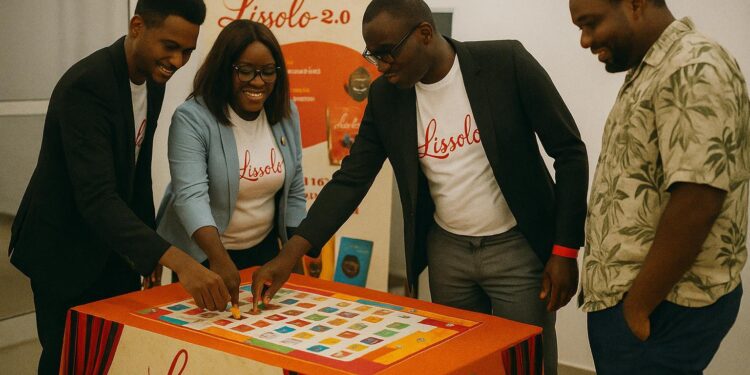A Board Game Framing Heritage and Soft Power
When the Pointe-Noire start-up KB Publishing unveiled Lissolo 2.0 to the press on 5 August, the crowded hall at the city’s cultural centre sensed more than the launch of a pastime. In the measured words of project lead Hugues Wilson, the endeavour is “a journey through our departments, a narrative map of Congo”. His phrase distils the broader intent: to embed national memory in a format capable of circulating well beyond classrooms and chancelleries alike.
The board game arrives in an international context where governments leverage cultural industries for what Joseph Nye once coined ‘soft power’. Brazzaville, keen to diversify an image often confined to hydrocarbons, sees in creative industries an avenue for portraying stability and modernity. UNESCO’s 2021 culture report lists the creative economy as contributing 3 percent to sub-Saharan GDP; local officials argue Congo can outperform that benchmark through targeted support of projects such as Lissolo.
Designing Pedagogy Through Play
Technically, Lissolo 2.0 offers 1 200 question-answer pairs printed on 350 cards and deployed on a custom Ludo-style board. Seven thematic pillars—art, culture, economy, entrepreneurship, fauna, flora, sustainable development and the newly added digital technologies—stage a multidisciplinary quiz that rewards both memory and strategic movement. The choice of a nine-plus age threshold reflects consultations with paediatric educators from the Université Marien Ngouabi, who emphasised cognitive load and symbolic play as critical to early civic awareness (Les Dépêches de Brazzaville, 8 August).
Wilson notes that the term ‘Lissolo’ means ‘story’ in Kituba, offering semantic continuity between oral tradition and contemporary design thinking. The design team convened linguists, historians and software storyboarders over two years, illustrating a method akin to serious-game production in Europe, but executed entirely in the economic hub of Pointe-Noire.
Stakeholder Synergy and Local Ownership
Financed largely from private equity raised within the Congolese diaspora in Paris and Montréal, the project nonetheless benefited from logistical facilitation by the Ministry of Culture and the Port Authority of Pointe-Noire, which expedited customs clearance for imported biodegradable board components. Cultural adviser Philippe Mboumba Madiela, representing the mayoralty at the launch, commended “an organic initiative that requires no budgetary offset from the municipality yet aligns with our youth policy”.
Observers from the African Development Bank, present in the city for an SME forum, pointed to Lissolo 2.0 as an illustration of the Bank’s 2022 Digital Transformation Strategy, which underscores low-tech solutions able to scale quickly across linguistic borders.
Toward a Pan-African Educational Franchise
KB Publishing’s roadmap projects three sister editions—Lissolo Teranga for Senegal, Lissolo Ivoire for Côte d’Ivoire and Lissolo Femina Africa focused on gender leadership—now in prototype. By standardising the game engine while localising content, the firm applies a franchising logic familiar to global media conglomerates yet rare among African SMEs. Market analysts in Johannesburg estimate a potential user base of eight million urban households across West and Central Africa with discretionary income for edutainment products (Quartz Africa, July 2023).
Such ambitions dovetail with the African Union’s Plan of Action on Cultural and Creative Industries, which advocates intra-African licensing and cross-border distribution networks. Should export targets materialise, Congolese creative entrepreneurs could join music and fashion as leading vectors of continental cultural integration.
Diplomatic Resonance of Ludic Nation Branding
Diplomats stationed in Brazzaville privately acknowledge the subtle leverage that a tangible, family-friendly artefact provides. One European ambassador described the game as “a conversation starter that gently counters reductive narratives about the Congo”. For the presidency, whose development plan Horizonte 2025 places social cohesion at its core, Lissolo 2.0 supplies a tool for reinforcing national pride without overt state propaganda.
By inviting embassy schools and cultural centres to pilot the English-language version next year, KB Publishing positions the product inside the repertoire of cultural diplomacy traditionally dominated by larger powers. In doing so, the company complements official policy, projecting an image of a Congo that innovates, educates and exchanges rather than merely extracts and exports. The dice, in more senses than one, have been cast.












































